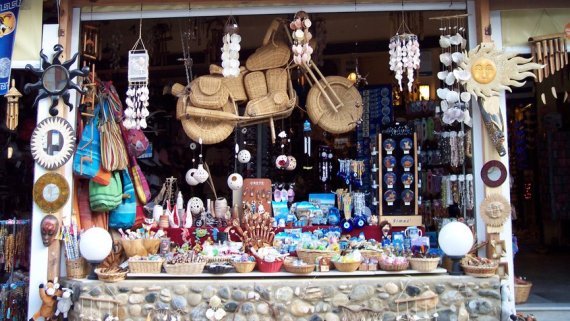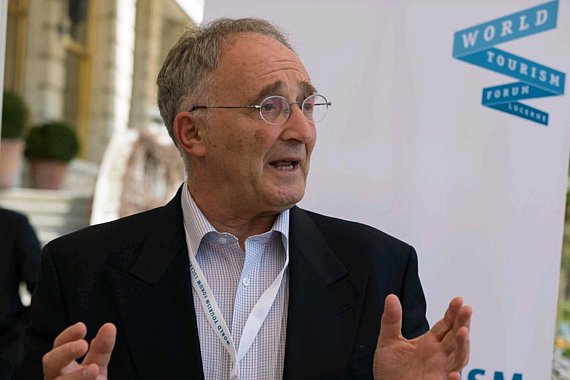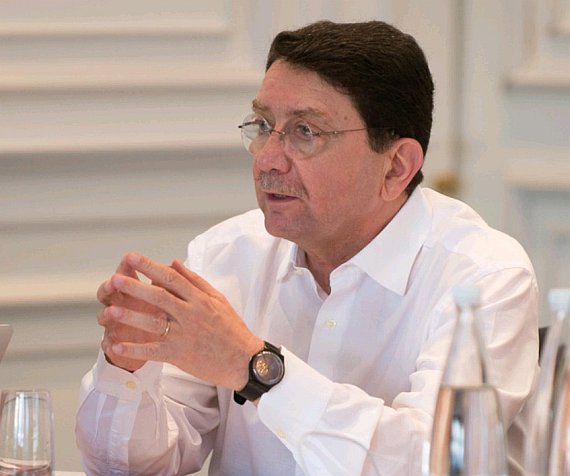WTFL Think Tank Disruptive new strategies needed
 |
|
| Tourism stimulates trade and jobs. / photo: giadphoto Fotolia.com |
Lucerne (June 7, 2013). The first annual Think Tank organised by the "World Tourism Forum Lucerne" (WTFL) in April has proposed new ground rules for sustainable travel and tourism development in a fast-changing, hyper-connected world. The overriding conclusion of the Think Tank was that if the industry is to reach its full potential to create jobs, boost economies and promote sustainable growth, "it needs disruptive new strategies and it has to move fast to implement them." A summary.
WTFL was established in 2009 as a biennial event at which global leaders in travel, tourism and hospitality could meet to identify the key issues facing travel and tourism, and to elaborate relevant strategies and actions to address them. What makes WTFL different is that its prime objective - indeed, its core mission - is to provide a forum for an exchange of views between today's global leaders and the next generation.
The event is the brainchild of Professor Martin Barth of the Institute of Tourism of Lucerne's University of Applied Sciences and Arts. This year, for the first time, on the initiative of Prof Barth and industry veteran and WTFL Advisory Board member Professor Geoffrey Lipman, a decision was taken to hold the first ever "WTFL Think Tank" prior to the Forum. Moderated by Lipman under Chatham House rules, the 25-strong group of movers and shakers from across the industry and government spent two days brainstorming the major challenges facing travel and tourism, reflecting on game-changing ways in which to address them.
The overriding conclusion of the Think Tank, according to Lipman, was that if the industry is to reach its full potential to create jobs, boost economies and promote sustainable growth, "it needs disruptive new strategies and it has to move fast to implement them."
 |
|
| Tourism mastermind Geoffrey Lipman. |
Key actions identified
The Think Tank report noted that the future is one of "hyper-change, hyper-connectivity and hyper-fragmentation”, and that the trends will not reverse. We must focus on those elements we can influence/control.
The key actions identified by participants were to:
• Make customers and communities the vectors of decision-making and engage them more intelligently and collaboratively;
• Look for smarter (green) growth in our resource-constrained world, where there is growing demand from huge numbers of increasingly techno-savvy, environmentally aware customers;
• Convince governments of the sector's scope/value and supportive politico-economic policies – particularly for finance and security/immigration ministries.
"Travel and tourism is so interconnected with other sectors like manufacturing, services, telecommunications and construction, that it is affected by everything," Lipman said. "Yet we as an industry operate in a goldfish bowl – we do not see what is going on in the wider world. The result is that we are behind the curve in our response," Lipman noted, "comparatively slow to change from traditional systems and structures, and dependent on big infrastructural frameworks/constraints, with massive numbers of new 'wired' travellers."
 |
|
| Taleb Rifai, Secretary-General of UNWTO. |
In search of smarter,
customer-focused strategies
"We have to become more customer and community focused and we have to change faster," he said, adding that the report should be required reading for public and private sector policymakers alike.
Other main conclusions from the Think Tank were the urgent need to:
• Fully understand the dynamic opportunity/risk situation – changes are complex, fast and inter-connected and hyper-connectivity brings hyper-opportunities, but also hyper-vulnerability.
• Evaluate objectively the results that the travel and tourism industry and other sectors’ research and experience show.
• Beware of over-simplistic reliance on the BRICS markets, which will have their own adaptation challenges.
• Adjust quickly and nimbly to capitalise on travel and tourism's potential as a job creator/development catalyst.
"We should do this in ways that put yield on the same page as numbers, and green on the same page as growth," Lipman said. All participants agreed that the Think Tank had been a valuable forum for genuine multi-interest, informed and objective exchange, and Prof Martin Barth said it would become an annual event in future.
UNWTO Secretary-General Taleb Rifai has been asked to host a stakeholders' meeting to consider further the question of bridging the silos, with specific focus on aligned advocacy and securing equitable development funding for tourism at its intersection with the Millennium Development Goals/poverty and the green economy. / Nancy Cockerell
| WTFL 2013 Summary Think Tank | |

|
|
|
|
|
To print this article you have to be registered and logged in for newsletter, visitor or subscription.





